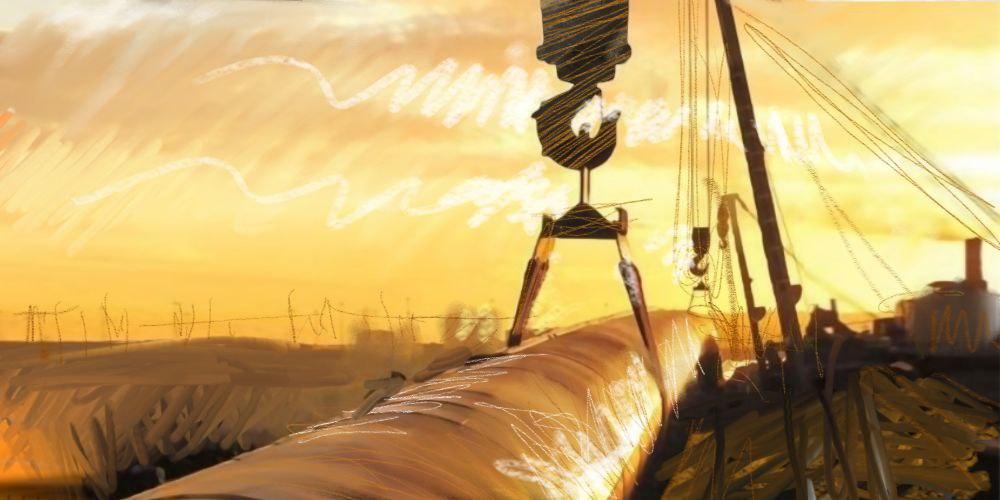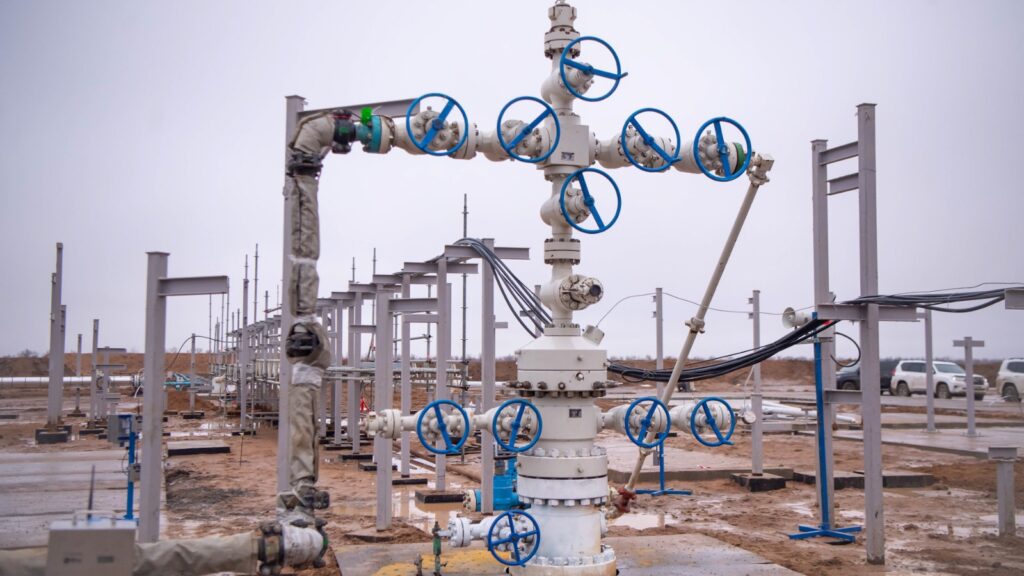Turkmenistan to Boost Gas Exports to Neighbor Uzbekistan
Uzbekistan has agreed to purchase more natural gas from Turkmenistan, though the amount of additional gas and the price remain unclear. Uzbek President Shavkat Mirziyoyev spoke by phone with the chairman of Turkmenistan’s Halk Maslahaty (People’s Council) and leader of the country Gurbanguly Berdimuhamedov on December 5 to discuss the deal. According to Turkmen state news, Berdimuhamedov “agreed to the increase” of Turkmen gas to Uzbekistan, and it would not be surprising if Berdimuhamedov was quietly dancing in celebration on the other end of the line. Anxious to Sell Turkmenistan has the fourth largest gas reserves in the world, some 17.5 trillion cubic meters, at least. To put that in perspective, the 27 countries of the European Union, combined, used 350 billion cubic meters of gas in 2022, meaning Turkmenistan has enough gas to meet all the EU’s gas needs, at current levels, for 50 years. Unfortunately, more than 33 years after becoming independent, Turkmenistan still does not have many customers for its gas. There is China, which buys the most Turkmen gas, some 35 billion cubic meters (bcm), Uzbekistan, which in recent years has been purchasing 1.5-2 bcm annually from Turkmenistan, and Azerbaijan, which gets 1-1.5 bcm of Turkmen gas via a swap arrangement involving Iran. Turkmenistan’s only successful recent export deal is with Iraq for 10 bcm, which involves a swap arrangement with Iran that will require maintenance work and repairs on Turkmenistan’s and Iran’s pipelines. Turkmenistan just lost Russia as a customer after the contract for Russia to purchase up to 5.5 bcm of Turkmen gas expired at the end of June 2024. The expiration of the agreement with Russia meant Turkmenistan lost its second biggest buyer, but that might now turn out to be good news for Uzbekistan. Anxious to Buy The jump in the number of people and accompanying expansion of service infrastructure have combined with Uzbekistan’s gross failure to increase domestic gas output to make Uzbekistan a net gas importer. In late January 2023, Uzbek media reported the country produced some 51.7 bcm of gas in 2022 and said plans called for increasing that to 56.3 bcm in 2023. Instead, gas production fell to 46.7 bcm in 2023, and it is set to decrease further in 2024. Uzbekistan signed its first contract for Turkmen gas in December 2022. That deal was for 1.5 bcm annually, but in August 2023, the two countries agreed to boost that to 2 bcm. However, that was not enough to fill Uzbekistan’s growing gas consumption needs. In June 2023, Uzbekistan signed a two-year agreement to import up to 2.8 bcm of gas from Russia, but by March 2024, reports showed Uzbekistan looking to increase Russian gas imports to 11 bcm starting in 2026. It looks like some of the 5.5 bcm Turkmenistan was until recently selling to Russia will instead be sent to Uzbekistan, so for Turkmenistan, the gas deal with Uzbekistan only recovers some of the revenue lost with the expiration of the contract with Russia....



